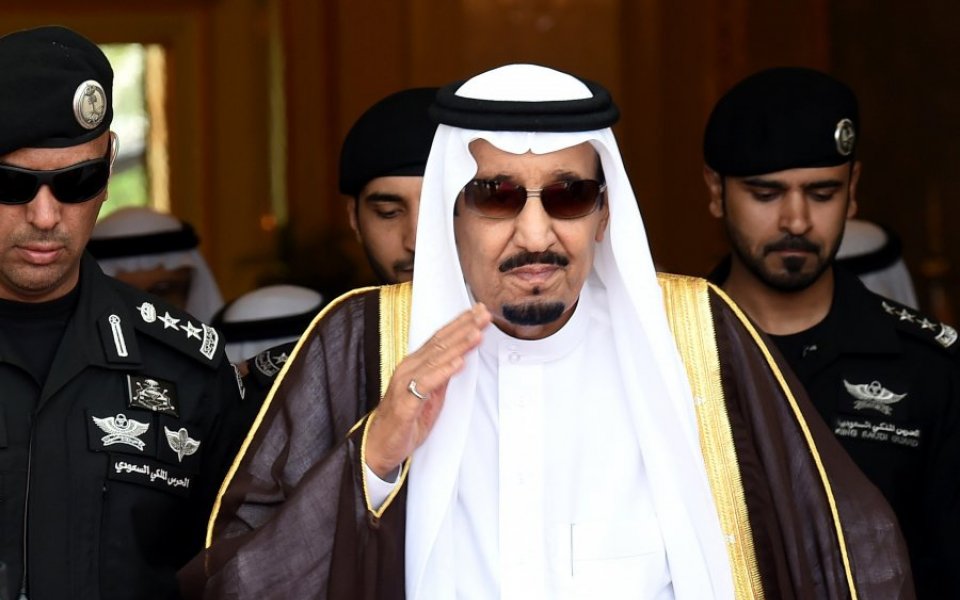Saudi Arabia under stress: Opec leader is adapting to $30 Brent crude prices and its widening budget deficit by privatising state-run oil company Aramco – and will not cut oil supply

No-one thought oil prices would stay this low, for this long. When the price of Brent crude first halved to $50 a barrel in June 2014, most commentators thought it would be back up again by Christmas.
Eighteen months later and oil has continued to go south. It is now priced 70 per cent cheaper than it was that June, and the economies dependent on crude to finance public spending are on a losing streak.
“Every day we think it’s the bottom, and then we see lower prices. Frankly it’s a little bit exhausting,” said Azerbaijani President Ilham Aliyev. The country’s currency, the manat, collapsed last month in a 30 per cent drop, a sign of the pressure on oil-reliant states.
Venezuela and Nigeria have spoken openly of their need for higher crude prices, calling for the Organisation of the Oil Exporting Countries (Opec) to hold an emergency meeting and put a ceiling on the cartel’s production levels. “We are looking for stability in the market, we are really worried,” Venezuela minister of petroleum Eulogio del Pino said.
Saudi Arabia, Opec’s kingpin, is refusing to surrender. It rubbished calls for an emergency meeting and has consistently resisted attempts to lower production targets. It has continued pumping out 10m barrels a day all through the crisis.
Read more: Iran gears up for $50bn investment boom
UNDER STRAIN
But the desert kingdom is not immune from the impact of cheap oil. It’s one of the wealthiest countries in the world, but even this economy is beginning to creak with strain. “Clearly it has had a massive impact. It’s most obvious on the fiscal side,” says Robert Holmes of NN Investment Partners.
The Saudis need oil prices at around $105 a barrel to maintain state finances, says the International Monetary Fund. It has a widening budget deficit, which clocked in at around 15 per cent of GDP last year.
“Saudi Arabia’s aggressive geopolitical strategy is also having a detrimental impact on its budget. The Saudi government ran a record budget deficit of $98bn last year,” notes Daniel Mahoney of the Centre for Policy Studies.
This is a combination of poor revenues from oil sales alongside the state’s splurge on infrastructure projects and celebrations around King Salman’s accession to the throne last year.
ADJUSTMENTS
But change is coming. The price of gasoline sold domestically to ordinary Saudis was raised 50 per cent at the end of last year.
This followed plans to raise $27bn from global investors through issuing sovereign bonds.
That’s a huge jump from the £4bn in debt the Saudis last issued in 2007 – a sign of their deepening commitment to opening up the economy, perhaps, or an indication the government’s seemingly relaxed response to rock-bottom oil prices isn’t quite the full picture.
“You can clearly see that this is beginning to impact domestic policy,” Holmes says. “There is definitely a wind of change coming through.”
And now, profligate public spending is going to be cut by 14 per cent, a figure described as “radical” by Ian Stewart of Deloitte. There are also plans underway to sell shares in state-run oil producer Aramco, potentially the first of many privatisations. The kingdom also wants to diversify its finances away from the dependence on oil, according to deputy Crown Prince Mohammed bin Salman.
Read more: The anti-oil movement picks up steam
“Having spent 2015 shrugging off accusations that it had no plan in place to adjust to low oil prices, the government certainly seems to have started 2016 on the front foot,” says Jason Tuvey of Capital Economics.
For the rest of the world, one thing is clear. The Saudis will adapt and tweak their finances, not oil output levels.
“It all reinforces our long held view that the adjustment to cheap oil is going to come via tighter fiscal policy,” Tuvey says.
Read more: US mulls price war with Middle East
When the chairman of Aramco, Khalid al-Falih, said he could withstand cheap oil for a “long, long time”, he wasn’t being solely provocative.
Despite the headwinds, Saudi finances remain “exceptionally strong,” says one analyst, with the armoury to stave off the harshest of fiscal threats for years. Anyone hoping the Saudis will relent from their aim of crushing non-Opec producers is waiting in vain.